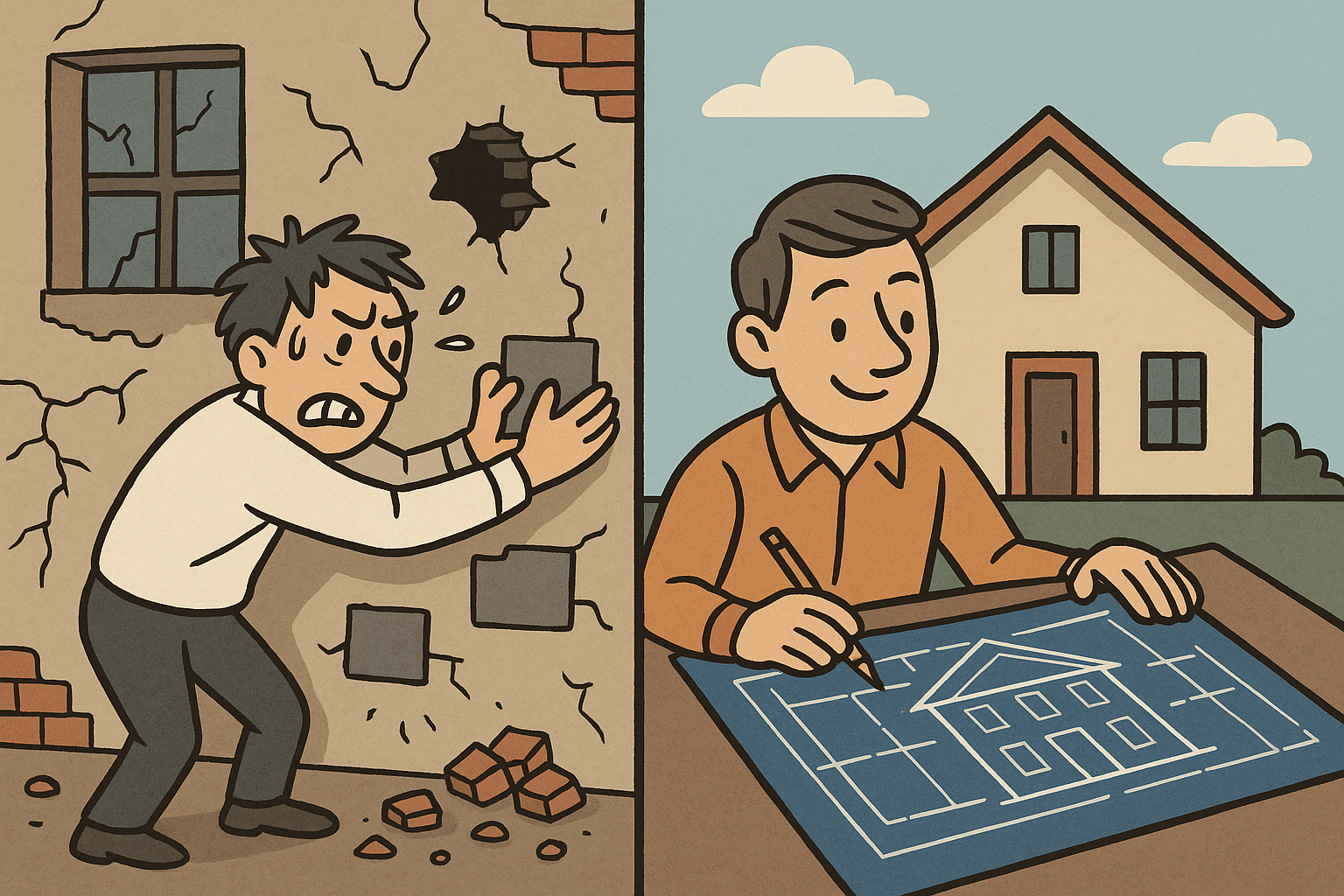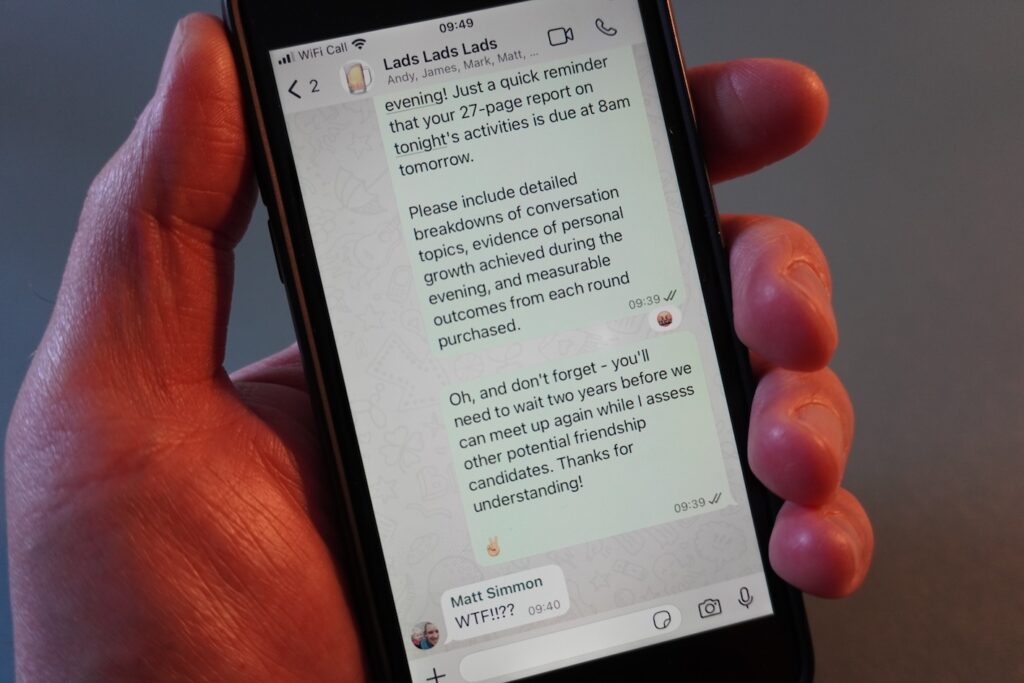Imagine we started all over again
Here are some charities who make a difference in the world.
Here are some philanthropists who want to play a role in that.
We work from the assumption that both parties want to make the greatest positive impact possible. Would we arrive at the current model of fund distribution?
I don’t think so.
It’s easy to diagnose problems with grant applications as a means of getting funds from philanthropic bodies to community organisations. And I’m not the first to do so. Here’s a quick round up of what people smarter than myself have pointed out in recent times:
👎 They’re paternalistic
👎 They’re inefficient
👎 They drive wrong behaviours
But it seems to me we’ve fallen into the trap of modern medicine, and are trying to devise ever more efficient medicines to deal with the symptoms of the issue – creating a bunch of unintended side effects in the process.
The improvement trap
Sure, people can write bids with AI and that’s good in some ways – equity, ease of application means less well-resourced charities get a chance. But it creates a flood on the funder side, and then they start using AI too. Then it becomes absurd. Medicines and counter-medicines to cure the effects of the medicines.
We see this everywhere in the sector now. Funders complain about being overwhelmed with applications, so they create more stringent eligibility criteria. Many just shut their doors entirely. The net result? Causes that are trying to make people’s lives better, trying to make the world a better place, are ending up trimming services, closing, or failing the communities they’re there to serve.
So AI isn’t improving a fundamentally broken system; it’s making it run more efficiently toward the wrong destination.
The real issue isn’t that grant applications are slow or bureaucratic – though they are. The real issue is that the entire model puts power in the wrong place, at the wrong time, focused on the wrong things. Adding AI to speed up the process just means we can be wrong faster and at greater scale.
This is why I talk about funding, not fundraising – because semantics matter. Fundraising is what charities do when they’re forced to scrabble for attention, time, and a few crumbs of money. Funding is what happens when we take shared responsibility for impact and equip people doing brilliant frontline work to get on with it.
Innovation from first principles
Much better – with health and with funding – is to stand back and take a first principles approach: what would a healthy funding ecosystem actually look like if we could create one from scratch? True innovation in funding would be:
1. Equitable
The power dynamic between funder and charity gets balanced when we focus on impact rather than control. Instead of “prove you deserve our money,” it becomes “here’s incredible change happening – if you want to be part of it, here’s how.” Communities bring lived experience and solutions. Charities bring expertise and delivery. Funders bring resources. When everyone’s contribution is valued equally, genuine partnership becomes possible.
2. Efficient
We have rapidly evolving 21st century tech – let’s use it properly. Not to speed up broken processes, but to enable entirely new ways of working. Large language models work brilliantly with words, which means the stories of real change can finally carry as much weight as spreadsheets. The person who says “you saved my life today” can be heard alongside the statistic that “300 people visited our food bank last week.”
3. Sustainable
Ten year funding, not one year. Proactive, not reactive. When organisations know their core work is secure, they can experiment, take risks, focus on long-term impact instead of the next application deadline. Short-term funding creates exactly the opposite of what funders say they want – risk-averse organisations that spend more time performing for donors than serving communities.
4. Systemic
Incentivise charities to actually address root causes rather than just sweep up the mess left behind by failed state policy. An empowered sector that can inform and influence systems change, not just patch up symptoms. This means backing organisations to challenge power structures, not just provide services that keep broken systems functioning.
5. Collaborative
Encourage funders and charities to work together on issues, not compete for tiny scraps. The current model pits organisations against each other for the same pots of money, when they should be collaborating to tackle shared challenges. Imagine if funders said:
“We think these five organisations working on homelessness should talk to each other – here’s funding for all of them to coordinate their approach.”
6. Abundant
There’s a LOT of money sitting in UK philanthropic funds. We need discussions about spending, not just accumulating. The scarcity mindset that dominates the narrative about grant-making currently isn’t based on actual resource constraints. Nobody says an endowment has to sit in perpetuity, just distributing its interest – we need more conversations about spending down in times of unprecedented need.
Why now is different
All of this would have seemed pretty utopian even 18 months ago (and probably still does to many people reading this). But AI offers something fundamentally different from previous technological revolutions.
When electricity transformed manufacturing, when computers revolutionised business, the benefits flowed primarily to those who could afford the infrastructure. Large language models are democratised from day one – free tools, cheap paid versions, accessible to anyone with an internet connection.
For the first time in history, the organisations closest to social problems have the same access to transformative technology as the institutions with all the money. This changes everything.
The question is:
Are we going to use this technology to make the current broken system run faster? Or are we going to use it to build something entirely new?



